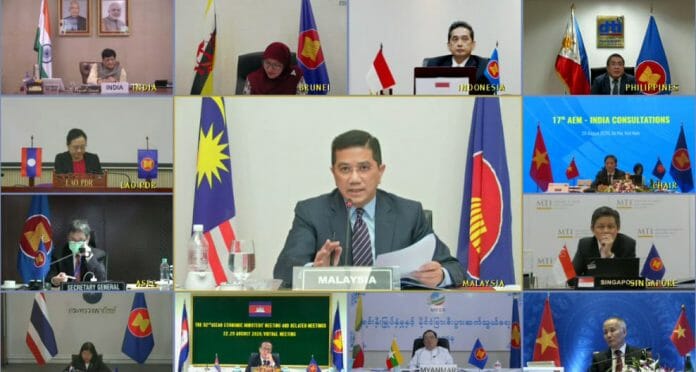Taking on adversity and making the most of it has been the trait for the whole of 2020, under the new-norm concept every business dealings, be it corporate or governmental has been to be innovative, pivot and continue to make it successful.
With Malaysia hosting the APEC 2020 Economic Leaders Summit this year, the challenge has been clear since March when the pandemic hit our shores, the notion of holding any physical event in the near future starting looking vague. A quick thinking solution was turning the event into a virtual summit, something never bee done before, then there were other logistical issues how do you bring 21 members of the Asia Pacific Economic Coorperation nation together, and not to mention the eight different time zones.
Having first hosted the event in 1998, we had to live up to the challenge in an exemplary manner. On this regards Senior Minister cum International Trade and Industry Minister Datuk Seri Mohamed Azmin Ali prides that until now Malaysia has managed to coordinate and carry out its responsibilities pretty well.
“This will not only raise Malaysia’s profile as a host, but also make the country more respected and esteemed among APEC economies,” he told in an interview ahead of the meeting.
Malaysia is also responsible for designing the most optimal digital format that can be adopted by all APEC economies, especially under the new norms due to the COVID-19 pandemic which restricts movement. Other challenges include technological capabilities, as not all the latest technologies can be used as some APEC economies have different cyber security regulations and technological capability gaps.
Safe to say these hurdles have been overcome, and the country can proudly shoulder the task of drafting the specifications and technical guidelines for hosting APEC meetings virtually. Among the agenda includes certain APEC programmes and initiatives at the APEC Senior Officials Working Group level and the Conference at the Ministerial Level up to the APEC Summit.
As the host of APEC 2020, Mohamed Azmin said Malaysia had issued seven joint ministerial statements that were negotiated and finalised without any physical meeting.
They comprised the Ministers Responsible for Trade’s (MRT) statement on COVID-19, Virtual Ministers Responsible for Trade — VMRT); APEC Small and Medium Enterprises Ministerial Meeting; APEC Finance Ministers’ Meeting (FMM); High-Level Meeting on Health and the Economy; Ministerial Policy Dialogue on Food Security; and High-Level Dialogue on Women and Economy.
Meanwhile, Azmin said the concept of Common Prosperity was adopted as the APEC 2020 theme titled “Optimising Human Potential towards a Future of Shared Prosperity”.
“Through this concept of Shared Prosperity, Malaysia has popularised APEC by encouraging discussions that did not just revolve around the normal agenda of trade and investment, but also focused on socio-economic benefits and translated into a format that is easily understood by the people.
“This concept has emphasised the need to address the issue of unequal wealth distribution among APEC economies,” he said.
Azmin believes the concept of Shared Prosperity coincides with APEC’s efforts to ensure that the economy and well-being of the people continue to be protected despite the pandemic.
The approach that should be taken today is no longer about protectionism, but rather strengthening collaboration between APEC economies and helping each other.
“For example, in the context of vaccines, we want the vaccines to be easily accessible to countries that may be in dire need of them,” he said.
APEC is a regional economic forum of 21 member states, which was established in 1989 with the goal of promoting free trade and sustainable development in the Pacific Rim economies.









